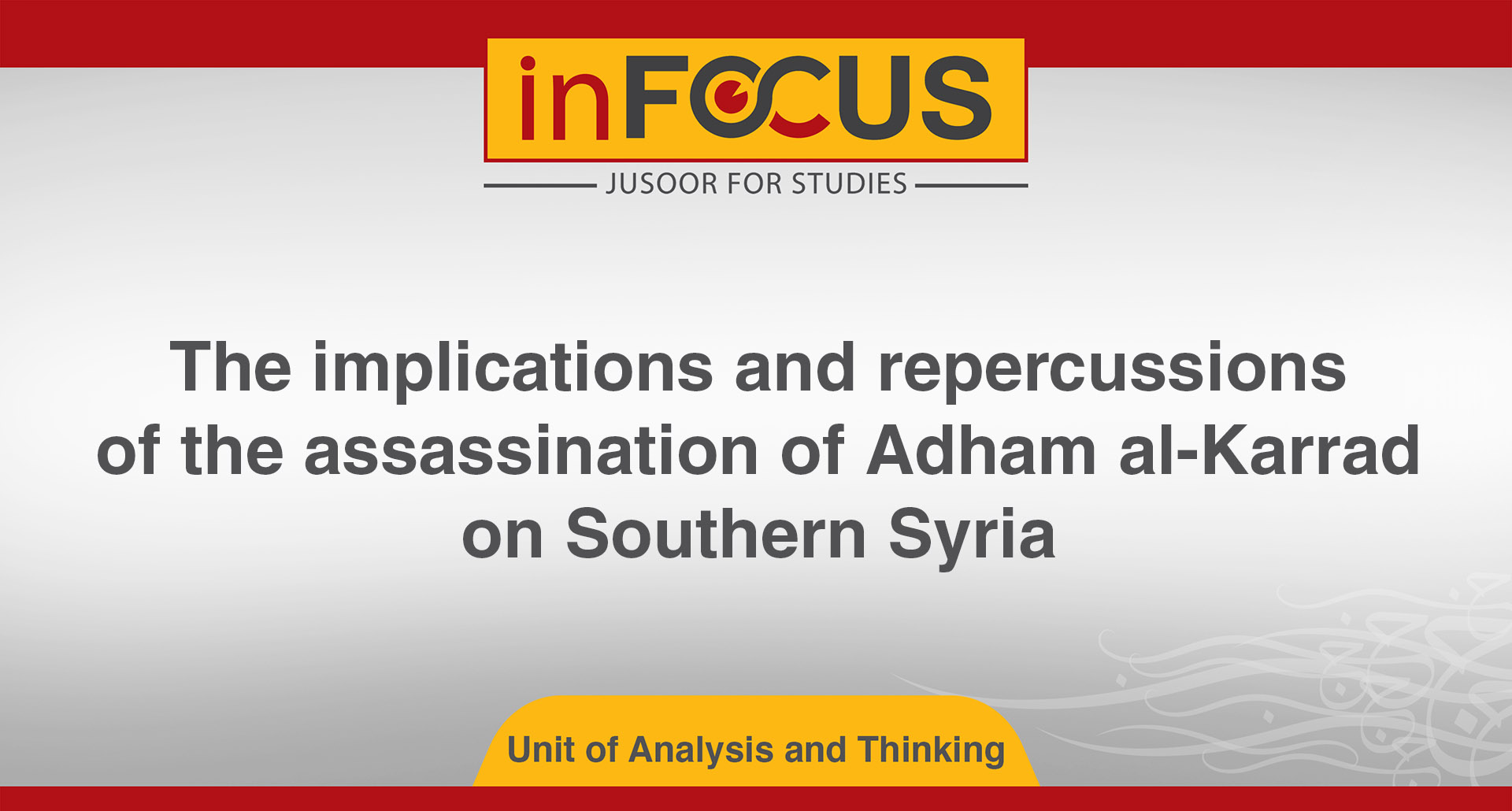The implications and repercussions of the assassination of Adham al-Karrad on Southern Syria
Font Size
In Focus | The implications and repercussions of the assassination of Adham al-Karrad on Southern Syria
On October 14, 2020, Adham al-Karad, the former leader of the southern front factions, was assassinated in an operation carried out on the Damascus-Deraa road near al-Sanamayn area. Al-Karad was accompanied by former leaders of the same front most notably Ahmed Faisal al-Mahamid and Ratib al-Karrad at the time.
The assassination was carried out as the former commanders returned from a meeting with Syrian regime security agencies in Damascus which aimed at negotiating the recovery of the bodies of former Free Syrian Army fighters who were killed during the battles with the Syrian regime in the ‘abandoned battalion west of Deraa. Russia had made guarantees to al-Karad and his companions about their safety during the meeting.
Preliminary information indicates the Military Security Branch in Deraa governorate, managed by Brigadier General Luay al-Ali, was involved in the execution operation. An armed group formed of several individuals opened fire on al-Karad’s vehicle from a small vehicle and then threw a grenade into the vehicle burning it.
The assassination has several motivations:
1. It ends the consolidation of former opposition fighters in the city of Deraa, as this bloc is considered one of the main obstacles to the expansion of the Syrian intelligence services in the city due to the state of cohesion among fighters and their retention of their weapons to this day. Adham al-Karad and the crisis cell commanders are the leaders of this southern bloc.
2. The armed groups affiliated with the Syrian opposition which preferred to remain in Deraa played an important role in resisting the expansion of the Iranian influence. This is most visible in the case of Deraa city where Adham al-Karad is considered a prominent leader. Assassinating al-Karad and his companions was then necessary to enable the expansion of Iranian influence and for the continuation of its recruitment processes.
3. Adham al-Karad recently reiterated his position opposing the Syrian regime and supporting the revolution. This position may have made Russia tacitly agree to the assassination operation as Russia rejects these types of approaches which are unresponsive to its interests. Al-Karad’s position contrasts with the case of Ahma+d al-Awda, the leader of the Sunni Youth Force faction, who visited the Fifth Corps subordinate to the Russian Khmeimim base and participated in military operations supported by Russia.
The assassination has several indicators, the most important of which are:
1. Russia’s role and its guarantees cannot be relied upon. Russia has often tolerated the expansion of the Syrian regime’s security services and the resumption of their activities in reconciliation areas, especially Eastern Ghouta and Deraa Governorate.
2. The Syrian regime’s insistence on the security approach to the solution in Deraa province as is evident through the assassination of the majority of the armed opposition leaders who entered the reconciliation.
3. The continuation of the Iranian role in southern Syria, despite Russian pledges to otherwise. Iran has worked to strengthen its role by targeting opponents to its plans to recruit fighters for Iranian militia.
Unit of Analysis and Thinking - Jusoor for Studies
To visit the English Telegram channel: Click here








